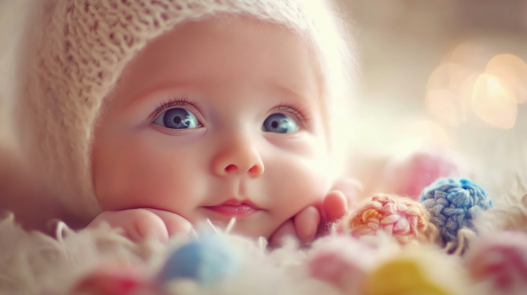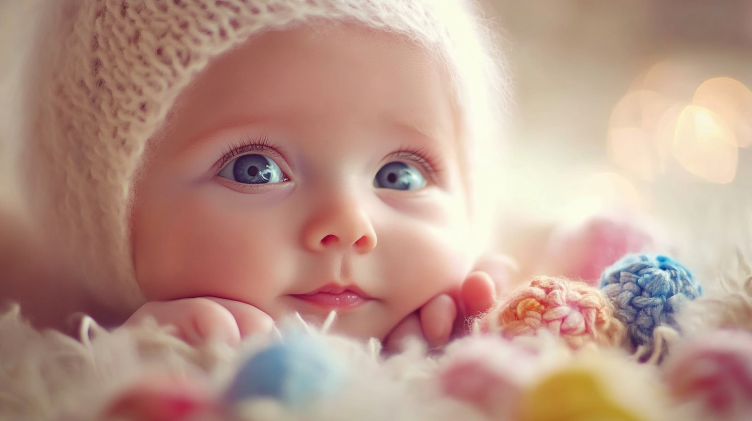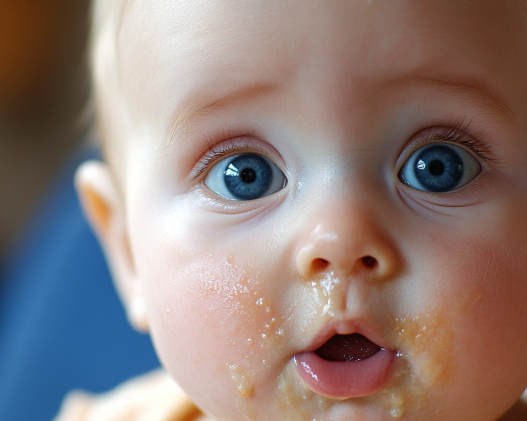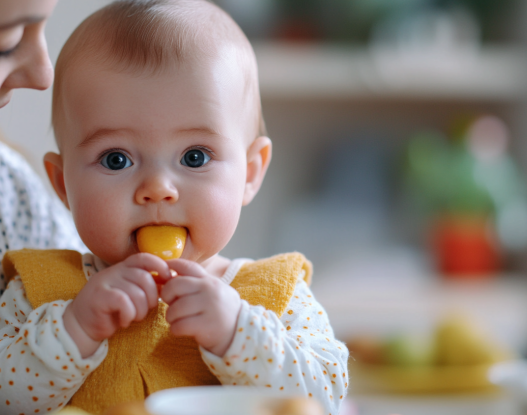As a parent, it’s hard not to feel a sense of pride and joy as you watch your baby grow, learning new skills every day. But there’s an often-overlooked factor in this growth journey—your baby’s vision development!
Did you know that the first year of your baby’s life is crucial for their eye development? During this period, their eyesight will directly impact their cognitive abilities, learning capacity, and even their emotional and social development. Protecting your baby’s vision begins with paying attention to these six important details.
1. Avoid Early Exposure to Screens
It’s tempting to let your baby watch TV or play with a tablet while you catch a break, but these “quiet time” activities might not be as harmless as they seem.
At this stage, your baby’s brain and eyes are still developing, and early screen exposure can negatively affect their vision. Especially in the first year, babies’ eyes lack the ability to focus properly, and extended screen time can lead to eye strain and even disrupt normal eye development.
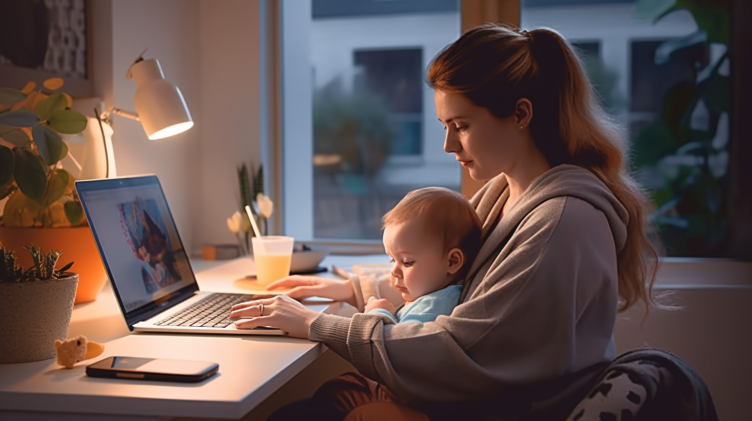
Tip for protecting baby’s vision:
Experts recommend keeping babies aged 0-2 away from any form of screen exposure, including smartphones, television, or tablets. Instead, encourage them to play with colorful toys or objects that are simple in shape to stimulate their visual development.
2. Be Mindful of Lighting Conditions
Many parents don’t realize that babies’ eyes are still immature in terms of regulating light. Too much exposure to bright lights or too little light can cause strain on their eyes, potentially leading to developmental delays.
If your baby is exposed to harsh sunlight for extended periods or stays in poorly lit rooms, it can put unnecessary stress on their eyes, interfering with normal vision development.
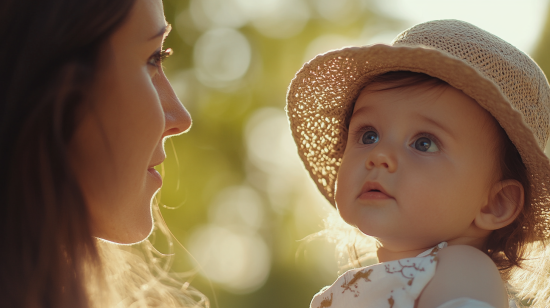
Tip for protecting baby’s vision:
When putting your baby to sleep, make sure the room has soft lighting and avoid direct bright lights. When going outside, shield their eyes from direct sunlight by using a sunshade or a sun hat.
3. Encourage Eye Exercises
In the first few months of life, a baby’s vision gradually develops from seeing only vague outlines to being able to discern detailed objects. This developmental process requires constant coordination between their eyes and brain.
A baby’s eye flexibility is a key aspect of visual development, and you can encourage this by giving them opportunities for eye exercises.
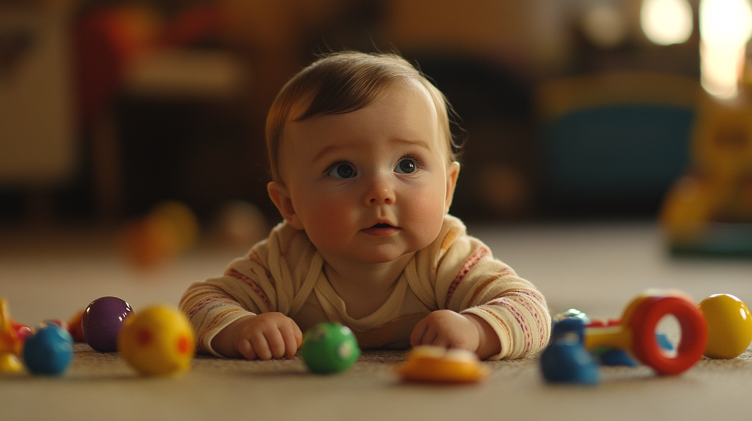
Tip for protecting baby’s vision:
During wakeful periods, use colorful balls or patterned toys to draw your baby’s gaze. This encourages them to move their eyes and follow objects. If your baby is able to do tummy time, let them look around at various objects to exercise their eye muscles.
4. Pay Attention to Your Baby’s Posture and Gaze Direction
What many parents don’t realize is that eye development isn’t just about the eyes themselves. It’s also related to the baby’s head and body posture.
If your baby spends long periods looking at objects with their head tilted or bent forward, it can interfere with normal eye development and may even lead to conditions like strabismus (crossed eyes).
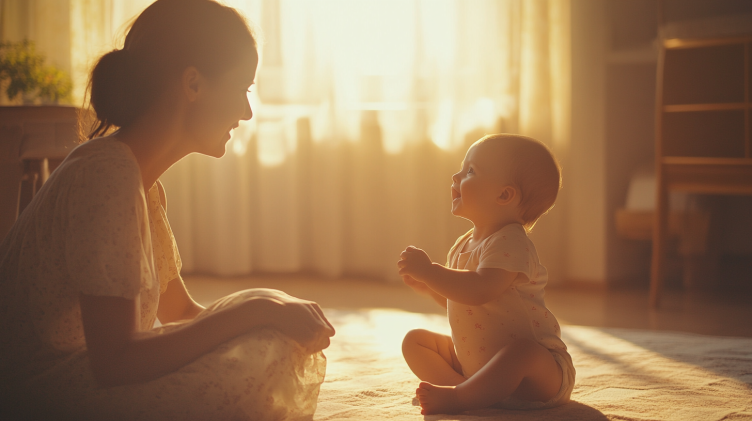
Tip for protecting baby’s vision:
When feeding or playing with your baby, try to adjust their position so that they’re not always looking in the same direction. Encourage proper sitting and crawling posture, and avoid letting them look down for extended periods.
5. Watch for Abnormal Eye Reactions
A healthy baby’s eyes should naturally adjust to light changes, and their eye movements should be coordinated. If you notice your baby squinting, crossing their eyes, or looking in different directions, it could indicate a problem with their eye development.
If these issues persist, it’s important to seek medical advice as soon as possible to avoid missing the ideal window for treatment.
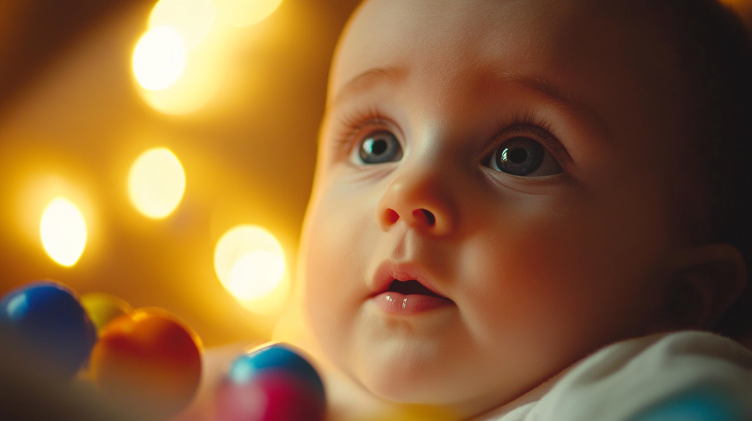
Tip for protecting baby’s vision:
Observe your baby’s eye movements closely. If they frequently squint, tilt their head, or have trouble focusing, try changing their viewing angles and see if the issue persists. If their eyes appear red, swollen, or there are any other abnormalities, consult a doctor immediately.
6. Ensure Sufficient Outdoor Time
Exposure to natural light is essential for eye development, and research shows that babies who spend time outdoors have better vision and a lower risk of developing myopia (nearsightedness).
Outdoor activities are not just beneficial for eye health but for the overall physical development of your baby as well.
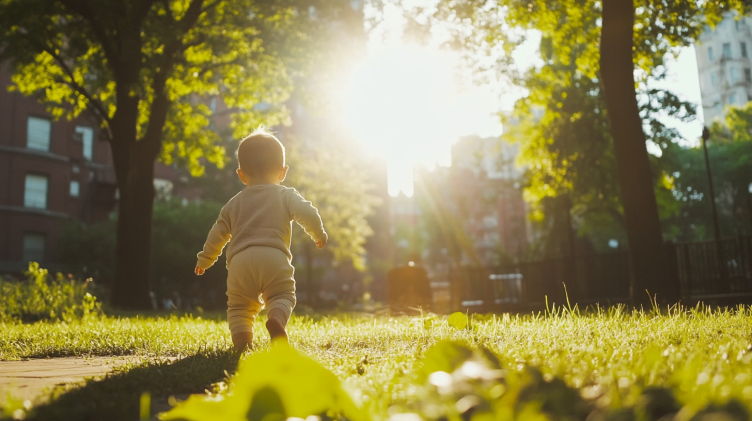
Tip for protecting baby’s vision:
Try to make outdoor activities part of your baby’s daily routine. Aim for at least one hour of outdoor time per day, adjusting for their age. Exposure to natural light helps their eyes develop properly.
Conclusion
The development of your baby’s vision is a delicate yet crucial process that will impact their overall growth. As parents, it’s important to be aware of the habits and environments that contribute to healthy eye development. By following these six simple steps, you can help safeguard your baby’s vision and give them the bright future they deserve. Start protecting your baby’s eyesight today, and be the guardian of their visual health!







